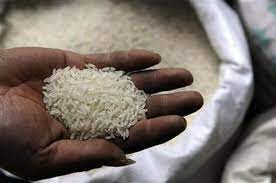Monitoring Desk
NEW DELHI: The ban on non-basmati white rice exports from India has had a ripple effect across the globe, driving up food prices. Since the ban’s imposition, global rice prices have surged by 15-25 percent, causing concerns about the affordability and accessibility of this vital staple food.
Largest exporter
As the largest rice exporter globally, India played a pivotal role in the rice trade landscape in 2022. During that year, India contributed nearly 40 percent to the total global rice trade, exporting a staggering 22 million tonnes valued at $9.66 billion to 140 different nations.
This substantial export portfolio encompassed a variety of rice types, including 4.5 million tonnes of highly regarded basmati rice, 8 million tonnes of parboiled rice, 6 million tonnes of non-basmati white rice, and 3.5 million tonnes of broken rice.
Despite imposing restrictions on certain rice exports, India continued to honor its international commitments partially by still exporting parboiled and basmati rice. Nevertheless, these export constraints had a profound impact on the global rice market, leading to price surges of 15-25 percent.
The most vulnerable in this situation are the economically disadvantaged populations in countries such as Bangladesh and Nepal, who heavily rely on Indian white rice, and in various African nations like Benin, Senegal, Togo, and Mali, where the affordable and nourishing broken rice variety is a dietary staple.
Poor nations hit hardest
The export ban’s impact is most acutely felt in impoverished nations such as Bangladesh and Nepal, where Indian white rice is a dietary mainstay, and in several African countries, including Benin, Senegal, Togo, and Mali, which heavily rely on the more affordable broken rice variety.
India’s export ban is the latest in a series of disruptions to the global food supply chain. Factors such as Russia’s invasion of Ukraine and unpredictable weather patterns like El Niño have added significant strain to food production and distribution.
IMF urges India to lift restrictions
The International Monetary Fund (IMF) has joined the chorus of voices urging India to remove its export restrictions. The IMF’s chief economist, Pierre-Olivier Gourinchas, expressed concerns that these restrictions could worsen global food inflation and uncertainty, further aggravating the food crisis.
Worries of a domino effect
There are growing concerns that India’s export ban could set a precedent for other major rice-exporting nations to follow suit, potentially exacerbating the challenges faced by global food markets.
India’s farmers, who make up nearly half of the country’s workforce, have been hit hard by a late monsoon and subsequent floods.
For these farmers, the export ban adds another layer of uncertainty to an already precarious situation.
The timing of India’s export ban coincides with erratic weather patterns, including delayed monsoons and widespread flooding, further disrupting the country’s agriculture sector and impacting rice production.
Indian farmers are concentrated in central, southern, and some northern states, with the summer crop planting season being a critical period for rice cultivation. This year’s challenges in the agricultural sector have added complexity to the situation.
As the global community closely monitors the aftermath of India’s rice export ban, concerns about the stability of global food supplies and the welfare of vulnerable populations continue to mount. The situation serves as a stark reminder of the interconnectedness of the world’s food systems and the need for coordinated efforts to ensure food security







